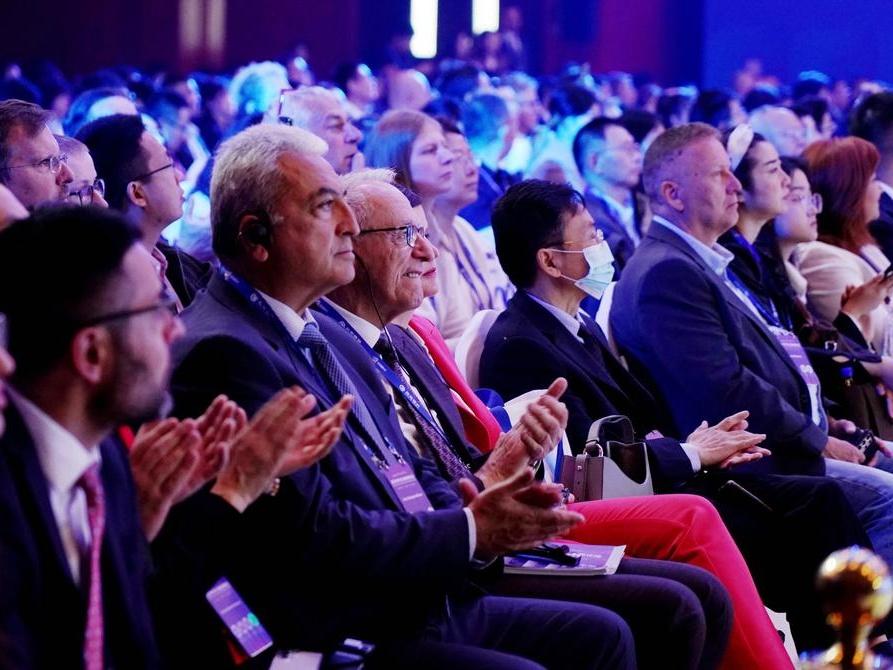Participants attend the opening ceremony of the China-Germany (China-Europe) Hidden Champions Forum 2025 in Beijing, capital of China, May 26, 2025. (Xinhua/Zhang Chenlin)
BEIJING, May 29 (Xinhua) -- The China-Germany (China-Europe) Hidden Champions Forum 2025 concluded in Beijing on Tuesday. The importance of investment and collaboration in the Chinese market is repeatedly emphasized during three days of in-depth discussions on industrial chain resilience, policy access and new technology cooperation.
The forum brought together over 600 representatives from China and abroad, including company executives, government officials, and industry leaders.
Hidden champions refer to highly successful yet lesser-known small and medium-sized enterprises (SMEs) that are global leaders in terms of market share in their respective niches.
Würth Group is a hidden champion that provides over 125,000 product variants, from screws to chemical-technical products for automotive maintenance, assembly technology, rail transportation, etc.
Harald Unkelbach, board member of Würth Group, highlighted the reliability and predictability of the Chinese market for foreign investors, noting that the group plans to increase its investment in China further, as it has already established 38 affiliated enterprises there.
Amid rapid digitalization, forum participants emphasized the urgent need for SME digital transformation and supply chain modernization.
According to Jiang Xiaojuan, professor at University of Chinese Academy of Social Sciences, digital platforms are helping SMEs engaged in cross-border research and development address challenges like low levels of product localization and slow development cycles.
Participants communicate with each other during an event of the China-Germany (China-Europe) Hidden Champions Forum 2025 in Beijing, capital of China, May 26, 2025. (Xinhua/Zhang Chenlin)
Another discussion point was the technological complementarity between China and Germany. Ivka Ocharova from Karlsruhe Institute of Technology noted that while Germany excels in foundational knowledge development and manufacturing technology, China leads in generative AI and applied technologies. This complementary dynamic creates vast potential for cooperation.
The innovation cluster network is one of the attractive aspects of Beijing, the host city of this forum. Beijing ranks third in the World Intellectual Property Organization's Science and Technology Cluster Ranking 2024 and that its GDP surged 5.2 percent to 4.98 trillion yuan (about 692.69 billion U.S. dollars) last year, noted Mu Peng, vice mayor of Beijing.
Beijing has continued to improve the business environment by aligning with international standards, and over 8,300 foreign-funded enterprises have been established here in the past five years.
Peng Jian, expert at International Cooperation Center of National Development and Reform Commission, pointed to the evolving role of hidden champions, with many transitioning from "in China, for China" to "in China, for the World." He added that German enterprises set up research and development links in China for products intended for global emerging markets and gain technical inspiration from this process.
Hans-Peter Friedrich, former vice president of the German Bundestag, said that not investing in China means missing out on prime access to Asia's vast regional market.
Friedrich shared a proverb at the forum that received applause from the guests in attendance: When the winds of change blow, some people build walls, others build windmills. He expressed the hope to collaborate with China to jointly create more "windmills" and promote shared development, especially during period of transformation.




 A single purchase
A single purchase









